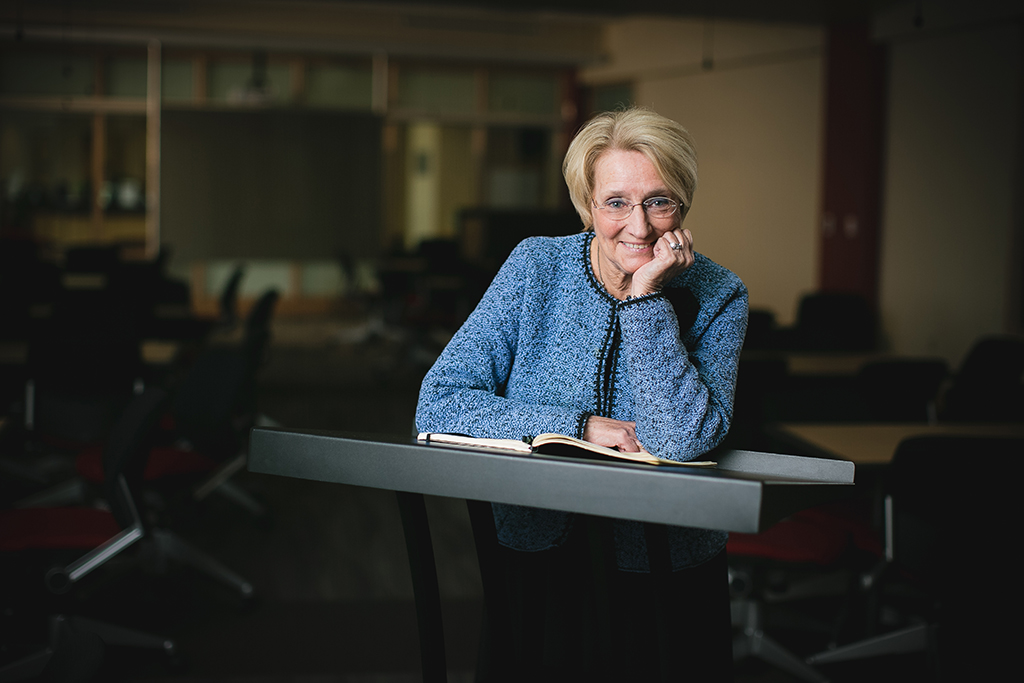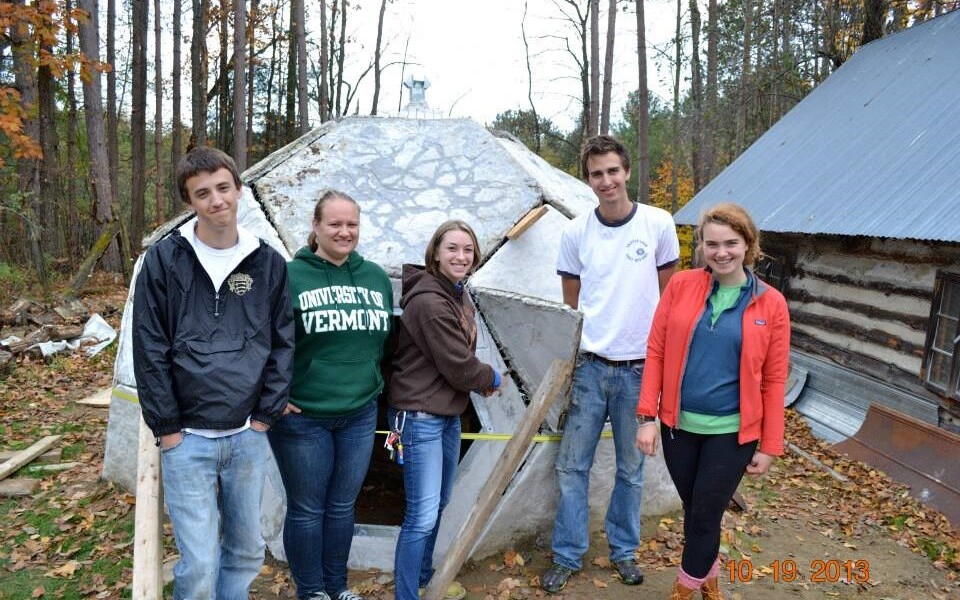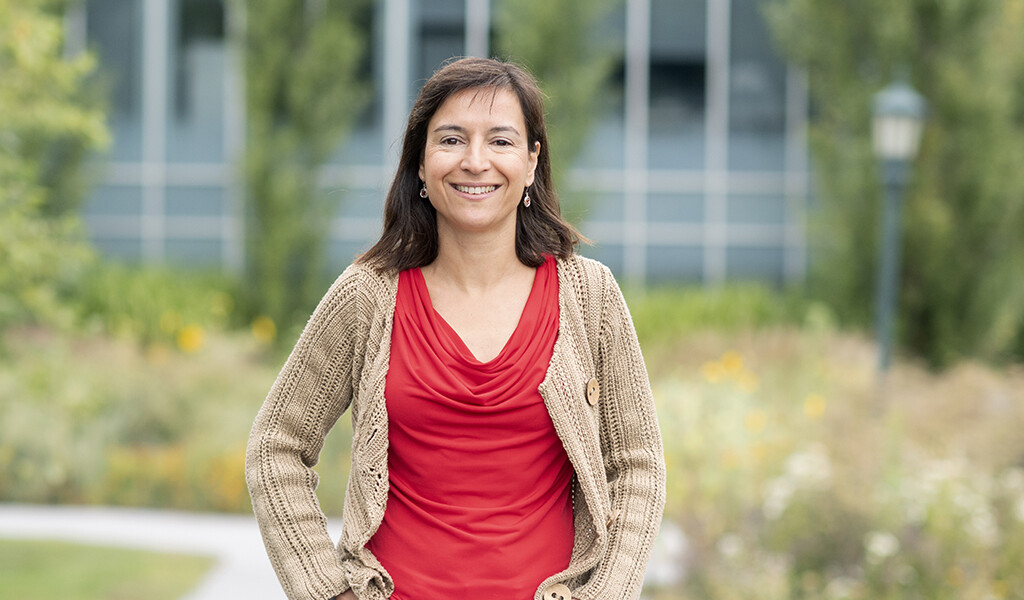Professor Paula Tracy believes in the power of mentoring students.
Since arriving at UVM in January 1985, she has mentored more than 100 undergraduate, graduate, and medical students, as well as post-doctoral fellows.
“When you mentor someone you have a relationship, and you learn their strengths and weaknesses,” says Tracy, who is based in UVM’s Department of Biochemistry in the Larner College of Medicine. Whoever suggested that if students can’t do it, then ‘let them fail, in order to learn,’ I disagree with. We fail plenty in life as it is. What you want to do is play to a student’s strengths and help with their weaknesses, so they learn they can do it.”
For Tracy, one of the most rewarding aspects of teaching is helping students who are struggling and watching the light bulb go on for them. She also prides herself on giving students the freedom and autonomy to discover the world of biochemistry through assignments, research, and lab work.
Tracy is teaching three courses this semester, including Advanced Biochemistry of Human Disease. A recent assignment was a take-home exam for students to write a public service announcement about why sugar-sweetened beverages are harmful. She also asked students to determine how to get various organizations on board to sponsor and promote an event to raise awareness.
“I want students to do the research and think about why this issue is important. I don’t want them to regurgitate what I’ve told them,” Tracy says. “One of the students in that class said to me, ‘Why do you have so much faith in us?’ And I said, ‘Why wouldn’t I have faith in you? You’re successful, engaged students, who are taking an advanced course because you want to.’ Not many speak to them like that. I try to treat them like adults, because I know they’re all going on to do amazing things.”
Setting High Expectations and Nurturing Students
Tracy attended Hobart and William Smith Colleges and went to graduate school at Syracuse University, where she received a doctoral degree in biochemistry. She went on to work at the Mayo Clinic as a post-doctoral fellow, where she became interested in doing research in, as well as teaching, the topic of blood coagulation. When students from small colleges came to the Mayo Clinic to learn about medicine by working in a research lab, Tracy would take them under her wing. It was there she realized how much she loved mentoring.
“Mentoring is about getting students to a point where they say, ‘I can do this,’” she says. “Because in science, there are peaks and valleys. The valleys can be really low and really long, and the peaks can be instantaneous and fleeting. But eventually, the high is so amazing that you figure out how to handle the valleys.”
Tracy also sets high expectations of students.
“I’m not the easy A. I’m pretty energetic, encouraging, but I’m also pretty demanding,” she says. “It doesn’t serve anybody well if you don’t set a high bar. But if someone isn’t making it, it’s my responsibility to tell them. You need to be a student advocate but advocate in terms of helping them get the best out of themselves. You have to help them figure out how to answer the question, ‘What can I be great at?’”
Tracy has served in various leadership roles since arriving at UVM nearly 35 years ago. She was appointed professor and vice-chair of biochemistry in 1997 and served as interim chair of the Department of Biochemistry from 2005 to 2012. She was Director of the Foundations Curriculum from 2012 to 2018 and was one of the original designers of the Vermont Integrated Curriculum (VIC).
But mentoring is perhaps what she is mostly known for, especially among students and alumni.
“Dr. Tracy was my main mentor through the course of graduate school. She was always the main guiding force in advising me on where to take my research, which projects to put hold, and which projects to push forward,” says alumnus Jay Silveira, a UVM assistant professor of biochemistry whom Tracy advised during his doctoral thesis. “During my graduate school years, her direct mentoring resulted in huge advances in all the critical skills—writing, public speaking, experimental design, data analysis, knowledge in my field of research, networking—I have as a scientist and educator today.”
That’s exactly what Tracy hopes to achieve with her students.
“It’s not important for me to be liked. I want to be respected,” she says. “It’s more important to me when students come back later and say, ‘Wow I’m so glad you pushed me.’ That’s what our job is. Our job is to provide an environment where people can grow.”
-The “UVM Is” series celebrates University faculty, educators, staff, and the campus community.




